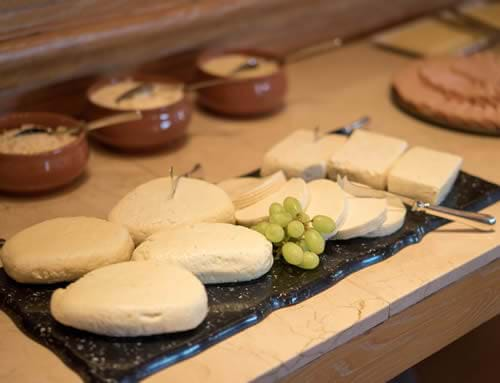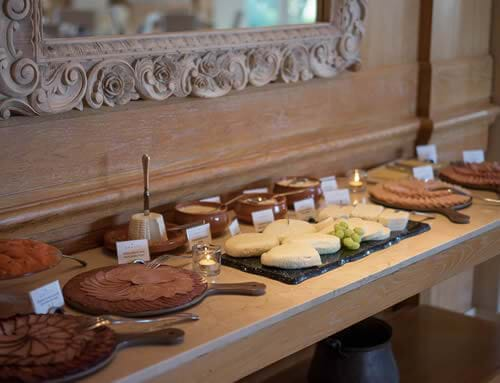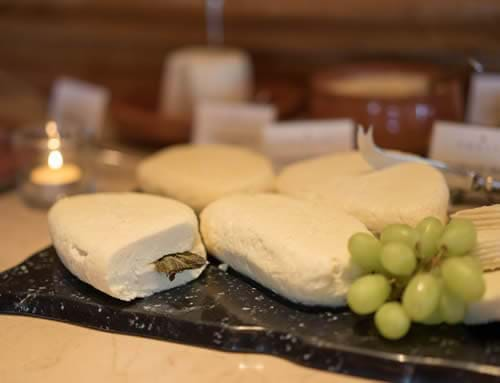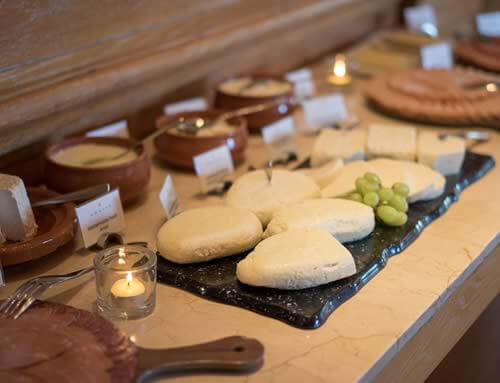Cypriots have long prepared distinctive village cheeses using local milk. Two of the best-known cheeses, halloumi and anari, are the result of a single, prolonged process. Twice a week, Anassa cook Anna Pyrgou devotes two hours to making them the traditional way. She begins by bringing pasteurised sheep’s milk to room temperature. Then she adds pidia, a lactic acid that separates the curds from the whey. Once the curds have set, she removes and places them in talaria—small wicker baskets that form the parallel grooves on the cheese’s side. She uses the basket to drain the cheese; then she removes the cheese ball, placing it on a tray to settle. Next the whey is brought to a boil, the temperature is reduced, and the cheese balls are poached in the whey for 20-25 minutes. The result, Anassa village cheese, is sprinkled with Akamas sea salt, garnished with mint leaves, and folded into a crescent. The whey left from this process is called oros, and it forms the base for the second cheese--anari. Oros and fresh sheep’s milk are combined over low heat. Eventually the curd separates and forms a crust. Again, the curds are placed into talaria for draining. Anari is chilled, not poached; it can be seasoned with salt, sugar and cinnamon, or carob syrup. Anassa is the only hotel in Cyprus licensed to produce these fresh cheeses. You can enjoy their delicate flavourings and light, creamy textures every day at Amphora.



